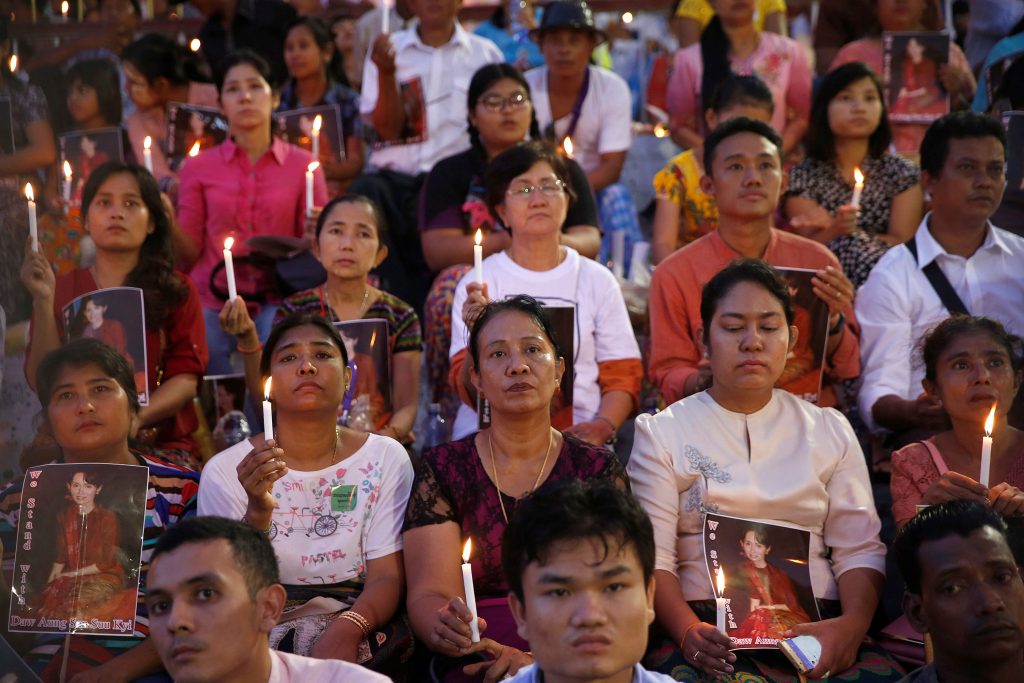When Pope Francis touches down in Myanmar (also known as Burma) on Nov. 27 for a three-day visit, the world will be watching to see what effect the papal visit will have on a nation whose de facto leader has been accused of remaining silent in the face of religious genocide, an ongoing tragedy that the pope has repeatedly condemned.
“I think the pope’s visit will lead to an improvement in interfaith relations,” said U Tin Maung Than, the general secretary of Myanmar’s Islamic Religious Affairs Council, a nongovernmental organization. “And I hope we can get good advice on the Rakhine conflict.”
The Rakhine conflict refers to the ongoing human rights violations against the Rohingya people, a Muslim minority in the predominately Buddhist country. According to reports from the United Nations and international rights groups, the military has driven out the majority of these Muslims (an estimated 600,000) from the northern part of the Rakhine State into Bangladesh. Rohingya refugees in Bangladesh have told stories of arson, execution and rape. At least several hundred of the Rohingya people have been killed.
Pope Francis has spoken out in defense of the Rohingya Muslims, saying they are “our brothers and sisters. They have been suffering for years. They have been tortured, killed, just because they want to keep their traditions and their Muslim faith.”
Despite the international outcry sparked by the reported genocide, the country’s de facto leader, Aung San Suu Kyi, has remained largely silent on the attacks against the Muslim minority for years — at one point in 2012 telling reporters that she did not know if they could be regarded as citizens. Pope Francis has said that these people should be given “their full rights.”
On Nov. 2, Suu Kyi drew more international criticism when she visited the Rakhine State and said nothing about the atrocities that have occurred there.
On Nov. 28, Pope Francis will meet with Suu Kyi at the presidential palace. This will be his second meeting with the once internationally beloved Nobel Peace Prize laureate. The pope met with Suu Kyi on May 4 of this year, establishing full diplomatic relations between Myanmar and the Vatican following their 90-minute meeting.
Days before the initial papal meeting, Suu Kyi had refused to allow the United Nations to investigate the reports of possible ethnic cleansing, saying the U.N.’s resolution was not “in keeping with what is actually happening on the ground.”
On the same day that the pope meets with Suu Kyi later this month, he will give a speech before the country’s government authorities, members of civil society and the diplomatic corps in the city’s international convention center.
The following day, Pope Francis will meet with the Sangha Supreme Council of Buddhist monks at the Kaba Aye pagoda, where he will again address the attendees with a formal speech. The pope may discuss the hardline Buddhists monks who were reportedly upset about the pope’s support of the Rohingya people. Journalists visiting Myanmar have also reported that its Buddhist population appears to have little empathy for its Muslim neighbors.
Later in the day Pope Francis will meet with the bishops of Myanmar at St. Mary’s Cathedral before offering Mass at Kyaikkasan Sports Ground. The pope will preach his homily to the country’s Catholic faithful, who number approximately 375,000, making up about 0.3 percent of the overall population.
The pope will then travel to neighboring Bangladesh, where he will visit from Nov. 30 to Dec. 2, becoming only the second pope to visit the country after Pope John Paul II in 1986. Pope Francis will be the first pope to visit Myanmar.

